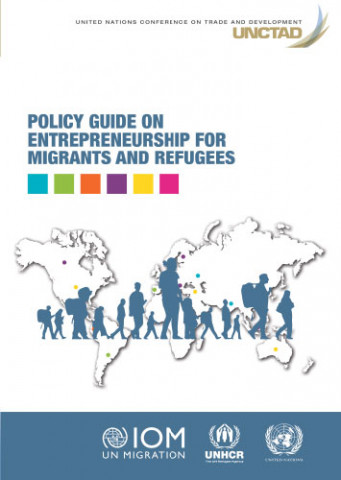Knowledge Platform
Policy Guide on Entrepreneurship for Migrants and Refugees
This inter-agency document offers practical guidance to policymakers and development partners on leveraging entrepreneurship as an effective way to include migrants and refugees in local economies. It offers practical guidance to governments and development and humanitarian partners on how best migrant and refugees skills and abilities can be leveraged to build their livelihoods while contributing economically to societies they live in and those that they come from - by sharing their knowledge and entrepreneurial spirit, creating new market opportunities, leveraging cross-border networks and generating employment. Policies and programmes play an important role in supporting entrepreneurial activity by (and for) refugees and migrants and in addressing the barriers they face to engaging in economic activity. Through this guide, the partnering organizations wish to acknowledge the role of migrants and refugees as an integral part of a globalized world and aim to enhance their contribution to, and benefit from, inclusive and sustainable development.
